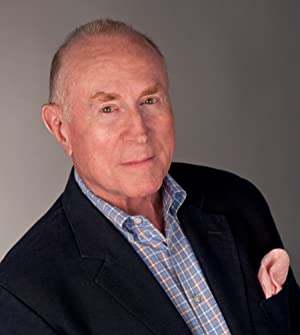 author
authorJohn M. Barry
John M. Barry is an American author and historian, perhaps best known for his books on the Great Mississippi Flood of 1927, the influenza pandemic of 1918, and his book on the development of the modern form of the ideas of separation of church and state and individual liberty. His most recent book is Roger Williams and the Creation of the American Soul: Church, State, and the Birth of Liberty (Viking 2012).
Barry's 1997 book Rising Tide: The Great Mississippi Flood of 1927 and How It Changed America appeared on the New York Times Best Seller list and won the 1998 Francis Parkman Prize from the Society of American Historians for the year's best book on American history. The National Academies of Sciences recognized his work on water-related issues in its invitation to give the 2006 Abel Wolman Distinguished Lecture on Water Resources; he is the only non-scientist ever to give that lecture.
His 2004 book The Great Influenza: The Epic Story of the Greatest Plague in History was also a New York Times Best Seller and won the 2005 Keck Communications Award from the United States National Academies of Science for the year's outstanding book on science or medicine. In 2005 he also won the "September 11th Award" from the Center for Biodefense and Emerging Pathogens at Brown University.
He has served on the federal government's Infectious Disease Board of Experts, on the advisory board of MIT's Center for Engineering Fundamentals, and on the advisory committee at Johns Hopkins Bloomberg School of Public Health for its Center for Refugee and Disaster Response.
The expertise he developed in these two areas has involved him in policy-making, risk communication, disaster management strategies, and developing resilient communities, and this work resulted in his induction into Delta Omega, the academic honorary society for public health. More specifically, he has advised the private sector and local, state, national, and international government officials about preparing for another influenza pandemic.
He has also both advised officials and taken a direct role in preparing for water-related disasters. A resident of New Orleans after Hurricane Katrina, he was also named to both the Southeast Louisiana Flood Protection Authority, which is the levee board overseeing several separate levee districts in the New Orleans area, and the state's Coastal Protection and Restoration Authority, which is responsible for hurricane protection for the entire state.
His first book, The Ambition and the Power: A true story of Washington, appeared in 1989 and explored the operation of the U.S. Congress, the use of power by Speaker of the House Jim Wright, and the rise of future Speaker Newt Gingrich. In 1995 the New York Times named it one of the eleven best books ever written on Congress and Washington.
With Steven Rosenberg, MD, Ph.D., chief of the Surgery Branch at the National Cancer Institute and a pioneer in the development of "immunotherapy" for cancer—stimulating the immune system to attack cancer—Barry co-authored his second book, The Transformed Cell: Unlocking the Mysteries of Cancer, which was published in 12 languages.
Barry has written for The New York Times, Time Magazine, Fortune, The Washington Post, Esquire, and other publications and frequently appears as a guest commentator on broadcast media. He has also coached high school and college football. His first published article was about blocking assignments for offensive linemen and appeared in a professional journal for coaches, Scholastic Coach.
Best author’s book





















